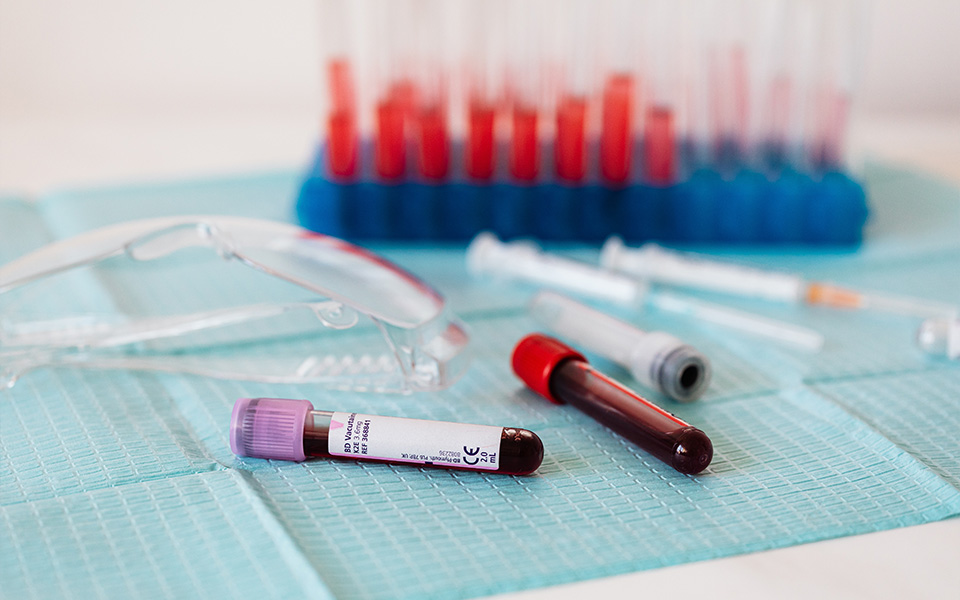Anemia is a potentially serious medical condition where your body doesn’t have enough healthy red blood cells, this in turn means you can’t carry oxygen throughout the body and end up fatigued/tired.
Our Blood
The average male body contains about 12 pints of blood and a female body about 9 pints of blood. Blood accounts for 7-8% of our total body weight and is composed of 45% blood cells (red blood cells, white blood cells, and platelets) and 55% plasma. Red blood cells (RBCs) are the most abundant cells in the blood; they contain a special protein called ‘hemoglobin’ which helps in transporting oxygen to different parts of the body. The presence of hemoglobin in the blood gives it the reddish color.
What is Anemia?
Anemia is one of the most common blood disorders; it is characterised by a decrease in either the number of circulating red blood cells (RBCs) in the body or the quantity of hemoglobin within the RBCs. Under such condition, the body is not able to get the required amount of oxygen it needs to perform different functions. Anemia can lead to fatigue, weakness, paleness of skin, shortness of breath, and many other complications.
How to Prevent Anemia
Once we are able to fully understand why anemia occurs, we can come up with a comprehensive plan to prevent it from happening. Here are the four leading causes of anemia:
- decreased or abnormal red blood cell production (such as heredity spherocytosis, thalassemia)
- physical loss of red blood cells (such as bleeding from the bowel or stomach, heavy periods or childbirth, cancer, ulcers, and gastritis)
- destruction of red blood cells (such as sickle cell anemia and artificial heart valves)
- decreased numbers of red blood cells
In Australia, iron deficiency is the leading cause of Anemia affecting more than one million people.
Prevention of anemia depends on the underlying factors that cause it and its severity. Mild cases of anemia usually get better with some quick lifestyle changes, whereas severe cases may need ongoing treatment at a wellness center, as they can be fatal if left untreated. It’s hard to treat or prevent anemia that is caused by a genetic disease, similarly, you cannot avoid anemia that is caused due to heavy blood loss. If your body is deficient in or unable to absorb and utilise certain nutrients, such as iron or vitamin B12, making diet changes can help manage your levels and prevent anemia. You may also look into iv therapy to get the nutrients you need.
Following are some of the steps you can take to prevent, treat and control anemia.
Follow a Healthy Diet
Following a nutritious, iron-rich diet can help prevent common types of anemia and increase your energy levels. Iron is very helpful in boosting the production of hemoglobin, which in turn helps to form more RBCs. Here is a list of some iron-rich foods that you can include in your diet plan to prevent certain types of anemia:
- broccoli
- red meat
- fish
- eggs
- soy products
- green leafy vegetables
- dried fruits
Similarly, increasing folate (a type of vitamin) intake is also linked with increased ‘heme’ production. Heme is an important component of hemoglobin that helps to carry oxygen. Here are some food items that are considered a good source of folate:
- peanuts
- beef
- kidney beans
- spinach
- black-eyed peas
- rice
- lettuce
To make sure that the iron and folate you have included in your diet is absorbed completely by the body, you also need to consume foods rich in vitamin C. Vitamin C is very beneficial in maximising iron and folate absorption.
For people with severe anemia, doctors may advise the intake of iron supplements. The dosage will depend on the severity of the condition and the symptoms. If you are worried you might be anemic contact us for a checkup.
Southgate Medical Centre
(03) 9690 1433
Doctor Melbourne

